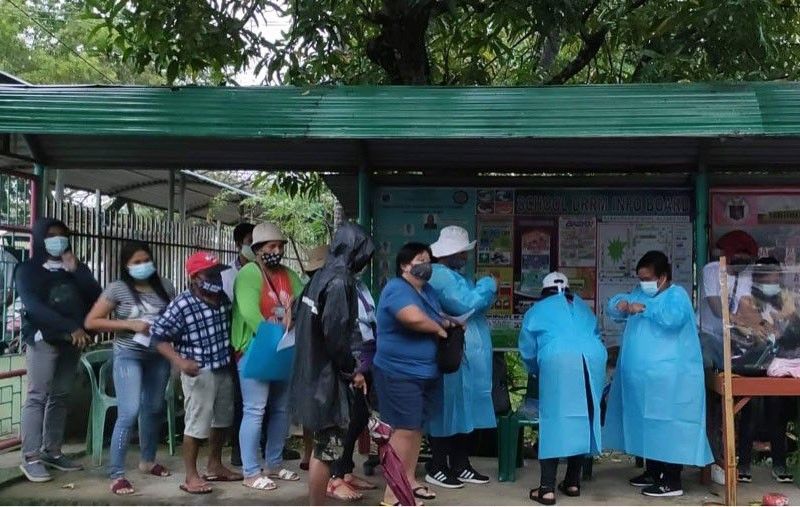Palawan votes in historic plebiscite seen as test for elections during pandemic

MANILA, Philippines — Residents of Palawan trooped Saturday to polling precincts to vote in a historic plebiscite seen as a test for elections in the Philippines during the pandemic.
The plebiscite: It would determine whether Palawan would be split into three provinces, as proposed under Republic Act No. 11259.
Voting in the plebiscite was done manually, with voters writing yes or oo if they agree with the proposal, or no or hindi if they reject it.
“This is a sort of laboratory for us on how we will conduct the national and local elections this coming 2022,” elections commissioner Antonio Kho Jr. told ANC.
Protocols followed: Voters were required to wear masks and were subjected to temperature and symptom checks.
Those whose temperatures were above 37.5 degrees Celsius or show symptoms of COVID-19 voted in isolated polling precincts, where election staff wore full-body personal protective equipment.
Isolation Polling Place (IPP) at Teresa Elementary School in Narra, Palawan #NAMFRELPalawan #NAMFREL #BantayNgBayan pic.twitter.com/IQTW2cpzEU
— NAMFREL (@Namfrel) March 13, 2021
In a preliminary statement issued two hours before polls closed, election watchdog National Movement for Free Elections (Namfrel) said that COVID-19 protocols were generally followed, save for a few violations.
“Perhaps due to inclement weather in some municipalities, there were instances when physical distancing in the queues was not observed due to the downpour at the start of voting,” Namfrel said.
Inclement weather may have affected physical distancing compliance (Narra Pilot School, Narra, Palawan) #NAMFRELPalawan #NAMFREL #BantayNgBayan pic.twitter.com/dxuqJ7Trkm
— NAMFREL (@Namfrel) March 13, 2021
Namfrel observed that in one voting center in Bataraza town, the wearing of masks and face shields was not being strictly enforced, while medical personnel were absent in a voting center in Aborlan town.
Other hiccups: The election watchdog also flagged reports of vote buying, including one witnessed by their observer in Brooke’s Point town, where envelopes containing P200 were supposedly distributed in exchange for people to vote a certain way in the plebiscite. Namfrel did not disclose whether this was for a yes or no vote.
Namfrel also noted that there was some confusion in voting precincts, but attributed this to the Commission on Elections’ efforts to limit the number of people in one polling place.
State-run Philippine News Agency also reported that delivery of election paraphernalia to the island town of Kalayaan was delayed due to rough weather conditions, resulting in polls opening late.
The Comelec also expected a low voter turnout, citing previous experiences with other plebiscites where only around 45% to 50% of voters would head to the polls to cast their vote.
“The interest of the voters is not really at par to the national or local elections where we have individual candidates running for posts,” Kho said.
The Comelec expects to finish canvassing by March 16, although Kho said the rough weather may delay this by a few days. — Xave Gregorio
- Latest
- Trending































